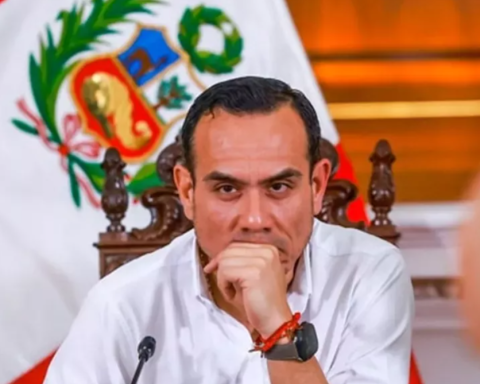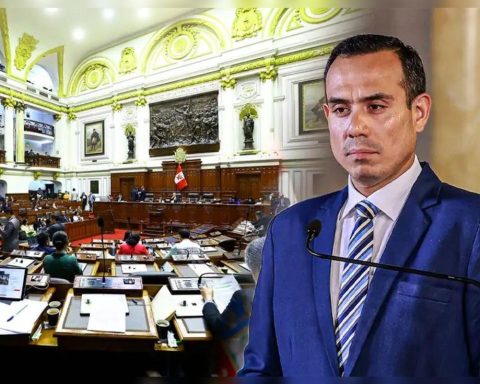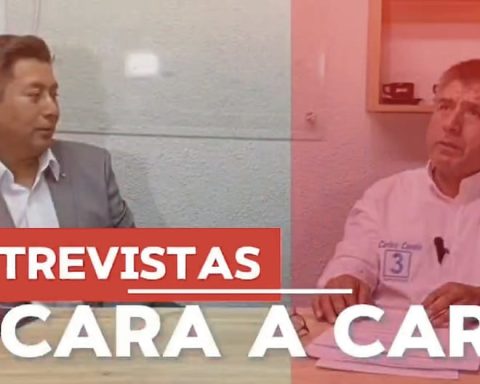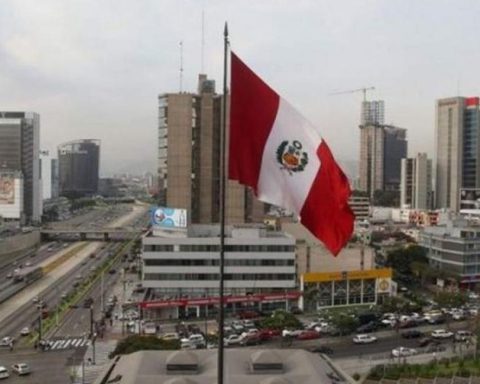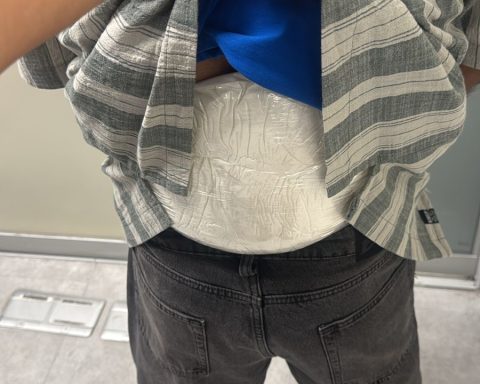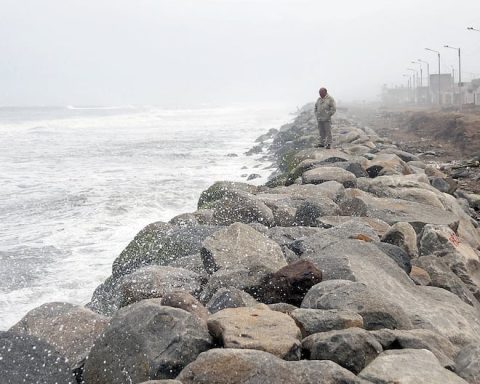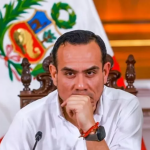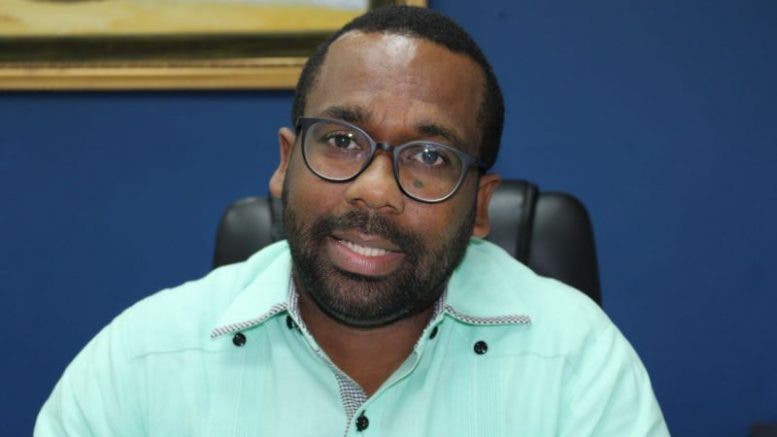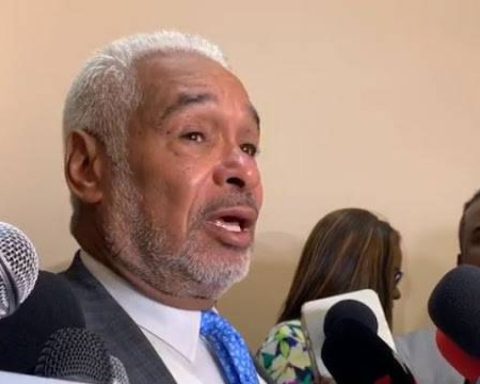Rosa María Palacios: “I’m returning to the LR+ set and there will be more interaction with the audience”
Rosa María Palacios — Host of ‘Sin script’, journalist and lawyer
—What added values will we see in the relaunch of ‘Unscripted’, your program on LR+?
– The first thing that is added is an interview section, which will make the program last between 35 to 45 minutes, every day, from Monday to Friday. The second thing is that there will be more interaction with the audience. Your comments will appear on the screen. And the third thing is that we return to the set of La República, which is very important after four and a half years of broadcasting from home as a result of the pandemic. This gives the viewer a better experience when watching the program.
—It is a time in which interaction is extremely important…
– It is very relevant. There are other segments, one of them is the one that sees us on all the platforms at the time they want and can… We also have a very large group that sees us in the minutes after the program starts and during the course of the day. That group cannot interact directly because we are no longer on the air. So my recommendation to the majority group is to try to see us live so that your comment can come out.
– Regarding the daily interviews, will these also be in person?
– There will be daily in-person interviews in the studio, although sometimes we will continue to use Zoom, but we will favor in-person interviews. Everyone is invited. We will always address topics that have to do with the current affairs of the day, and we will try to find a little more angle to the news, a development of the news through the interview.
– A temporary question, donald trump has returned to power in the United States. Why are political figures like Donald Trump, Javier Milei or Nayib Bukele gaining so much popularity?
—Because they say something that the voter appreciates… That is the first question one should ask: why is a person who supposedly has so many demerits chosen over his opponent? Because the opponent is worse for the majority. That’s the answer. And I think Trump ran a campaign in which he connected with the issues that people cared about. And that made the rural middle class in the United States win, which is very broad, so the rural vote went entirely with the Republican Party, sweeping the results.
– Returning to the country, does the APEC that is about to take place in our country generate any expectations for you?
—The truth is that the issues being discussed are of interest to the largest economies in the world that are in the context of the Pacific. We are the hosts there, but we don’t have much to say in this matter. We already have our free trade agreements with almost all the economies that are coming and we are simply hosting an event that is much greater than our interests.
*You can tune ‘Unscripted’the program Rosa María PalaciosMonday to Friday, from 9:30 am, on the La República LR+ YouTube channel.
Jaime Chincha: “It is the time of streaming, of Instagram, of TikTok”
Jaime Chincha — Host of ‘From fact to saying’ and political journalist
—How do you feel about this new stage of change from the small screen to streaming?
—It is quite a discovery because it is the voice of these times. It’s time for streaming, for Instagram, for TikTok… Facebook is like the oldest network. It is the leap that I was inevitably going to take sooner or later and it seems amazing to me. I am discovering this world and it is the world that will accompany us for a long time.
—What differences do you see with television?
– Journalists are going to survive. Wherever it appears, be it on the web, in print, streaming, through a graphic, PDF, it doesn’t matter, what matters is surviving doing journalism and producing content.
—With your new LR+ program ‘From fact to saying’, what awaits us?
– Make content, do interviews, express myself, give your opinion freely, which is what this platform allows you and do what one has been able to learn modestly in the last 25 years: do free journalism.
-On the other hand, what do you think of the current situation in Congress?
– They are criminal organizations, mafias. The organized crime law (32108) is an outrage. Congress has given an iron fist to criminal organizations.
–And about the arbitrary laws that seek impunity for themselves?
—Unfortunately, the country chose those barbarians who today have leaders investigated for money laundering and other crimes. There are several parties that, according to tax investigations, are criminal organizations. So, they wanted to cleanse themselves of this crime and ended up helping the extortionists, the hitmen. We live in the jungle. They realize it, but they don’t give a damn.
– Even though some of them have reported that they are being extorted?
—They are fewer, but those who have cooked up all these laws have done so to cleanse their leaders and cleanse themselves of the crime of criminal organization. That’s the most serious thing.
– Do you consider Dina’s Government to be the worst in history?
—Of all the history, I think the Gutiérrez brothers would have done it better.
– Even worse than Pedro Castillo’s?
Even worse than Pedro Castillo. If you put Castillo’s (from July 2021 to December 2022), the Boluarte Government is (even) worse.
– Regarding Dina’s alleged meeting with Vladimir Cerrón in Mykonos, do you think she met with him?
—I think so, because Santiváñez says it in the audios (with Captain Culebra). The other day Prime Minister Adrianzén escaped: ‘Yes, he was in Mykonos’; on the social network X was corrected (Adrianzén), but now, well! Don’t let him see our faces.
—Even though the spokesperson has denied it?
—But the poor spokesperson, well… They put him there to say one and a half jokes.
*You can tune ‘From fact to saying’the program Jaime Chinchafrom Monday to Friday, at noon, via La República LR+ channel on YouTube.
Nancy Arellano: “We are going to demystify some issues of migration”
Nancy Arellano —He will host ‘Foster Countrymen’ and ‘Code 005’
—Nancy, is everything ready for your programs?
– Ready, we’ll be recording soon.
—Will you deal with migration?
-The idea is to promote a space for opinion called ‘Adoptive Compatriots’. Because today, resident foreigners are part of Peruvian society, we are compatriots at this moment. We are interested in the same objectives, of a safe community, a clean community, of opportunities for all people.
—Migration without paradigms, without prejudices?
– Yes. And demystify some issues, such as the conflicting interest between nationals and foreigners. If we talk about people who are displaced, forced, who rather see in Peru the opportunity to build a home, that must be differentiated from transnational organized crime. Nationality is not a factor for criminal conduct.
—Will there be dialogue then?
—Yes, the idea is that ‘Adoptive Compatriots’ is weekly, addressing the problems of migration and the opportunities we see in Peru. And another biweekly program, ‘Código 005′, alluding to the telephone codes of Latin America. A space for exchanging opinions on cases throughout the region and with representatives of the Venezuelan community in those countries.
–How is the immigration issue progressing in Peru?
—There is a natural integration. Today there are more than 100,000 binational families with Peruvian children of a Venezuelan father or mother, or a Venezuelan father and mother, and this is data from Reniec. There are more than 3,000 companies registered by Venezuelans, formalized, small businesses. And there is a significant number of Venezuelans on the payroll, in Plame, about 50,000. That is, when a Venezuelan resident works formally, one, he contributes in taxes, and two, he consumes. And that ends up generating income for the nationals as well. We must understand this dynamic effect on the economy.
– Does this natural integration that you refer to clash with the anti-immigrant discourse of authorities in the Executive and Congress?
– There are premises that do not fit the evidence. For example, in crime statistics, the probability that you will encounter a Venezuelan criminal – if we use the nationality variable – is half that of that you will encounter a national criminal. And we talk about statistics of complaints in Sidpol.
– Is there political use?
—Yes, there has been political use of discriminatory speeches.
–And the press on the subject?
—There has been morbidity. We have fallen into a vicious circle of narratives that criminalize migration, surveys that end up repeating what is mediated, and authorities that generate public policy through surveys, trying to seek popular applause. What cannot be forgotten is that those one and a half million Venezuelans in Peru also consume media and are stopping consuming media. We are part of the market, of the community. If the water goes out on the block, it goes out for everyone. If there are people who assault you, they don’t ask you for your immigration card to take your phone. â�–

